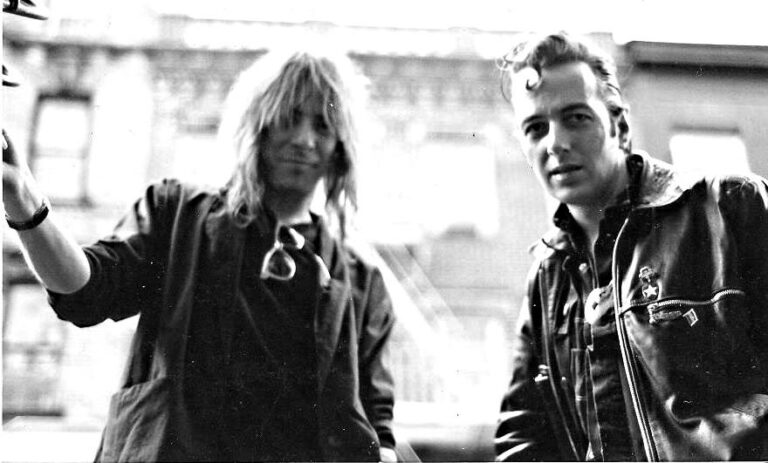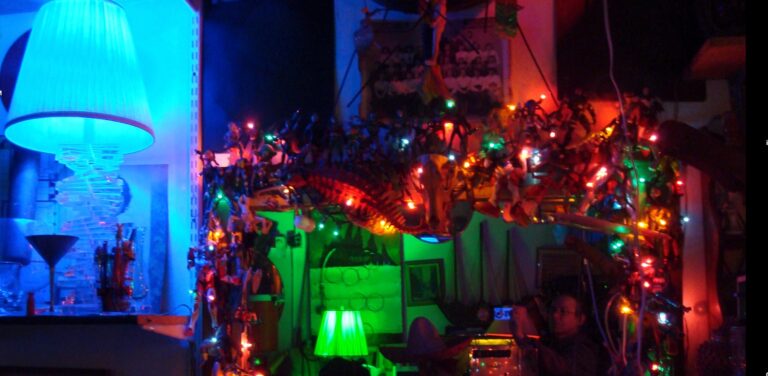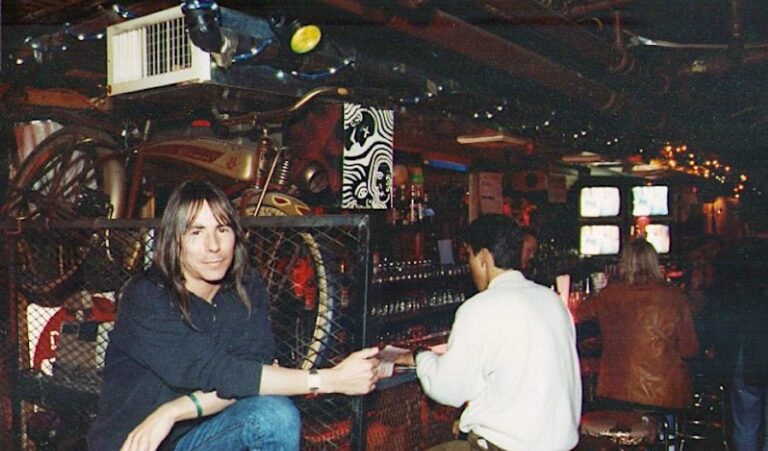Ahh, the morning social media tune-in (sigh). It’s increasingly filled with the kind of news you really don’t want to hear and certainly can’t use. On Monday, December 21, it was teeming with word that the NYC music and arts scene had lost one of its boldest and most congenial promoters, Steven Paul Trimboli, on the night before Thanksgiving due to a massive stroke.

New York actually lost Steve Trimboli a few years back when he decamped from high rents NYC for Detroit with the 2014 closing of his beloved Goodbye Blue Monday. Opened in 2005, Goodbye Blue Monday was one of the first clubs established in Bushwick with the gentrification of the Lower East Side. The West Village was where Trimboli ran another popular institution, the metal music-centric Scrap Bar from 1986 – 1995. All totaled, Trimboli spent over 40+years in the scene, as club owner, booker, bartender and ceaseless creative pot stirrer.
https://www.youtube.com/watch?v=AX-cP4t9uvE
According to an article by former Observer culture writer Drew Grant, Trimboli’s Scrap Bar was “the place where punk went to die and hair metal held the wake.” It was the metal sculpture-adorned venue, a dive bar as done by H.R. Giger of Alien film fame, where MTV held some of its most raucous Christmas parties during the hair band era. It was where Johnny Thunder would go on the nod and Slash would be “serviced” under the table by porn star Savannah.

To avoid noise issues, Trimboli created one of the weirdest sound systems I ever encountered in my life as a musician. Guitars, bass, keys, vocals, etc. would all essentially be plugged into a giant stereo, including the drummers, who had to bash away on electronic kits (not always happily). This was all feed into a seemingly endless array of tiny speakers placed throughout the Goth-like venue. Bands not only got to play, but to walk away with a video of their performance provided on VHS by Trimboli’s sound guy for a few bucks. It had a liberal booking policy, mostly metal in its early days. But it woud later evolve into nightly lineups showcasing emerging indie, folk, punk, poets and even no wave-ish and experimental jazzbos.
https://www.youtube.com/watch?v=_HWlOnQOEoQ
Trimboli himself departed Manhattan for Bushwick in 1999, and spent the next five years trying to get his newest venture off the ground.
Situated under the elevated J Subway line on a seriously darkened stretch of Broadway, Goodbye Blue Monday was another wholly unique institution. It matched the carnivalesque vibe of a junk shop with a dive bar/performance venue. There was never a cover and a booking policy that would grant pretty much anyone a bit of stage time – from musicians to comics, from poets to mimes. The stubbornly seedy joint seemed to cook 365 days a year and helped launch the careers of notables like Vampire Weekend and events like the quirky songwriting conclave, The Bushwick Book Club.

“Goodbye Blue Monday was an old-school Brooklyn radical art hole both epic and legendary,” remembers Radio Free Brooklyn host Robert Prichard. “GBM was something very rare and very precious; it was a real creative community. It was the kind of place that brought smiles to faces and inspiration into hearts. The world seems a lot smaller today without Steve (Trimboli) in it.”
“When you’re trying to find yourself creatively, there is nothing more helpful than having a space to do it,” writes Christopher Mastumoto, MC C.B on Facebook. “A space free of judgments where you can just go up on stage and see what sticks. Something that nowadays is very, very scarce.
“Steven helped me get to that stage when I needed it the most.” Adds Mastumoto. “He was upfront and honest and gave unlimited opportunities to any person looking to be creative. His venues never held you to a cover or any of that bullshit “you need to bring 15 people at $10 a pop” – a scam many promoters still do. It was something a young kid like me, and so many others, needed to begin to make their mark.”
For more on the life of Steve Trimboli, read Drew Grant’s Observer article.


Comments are closed.